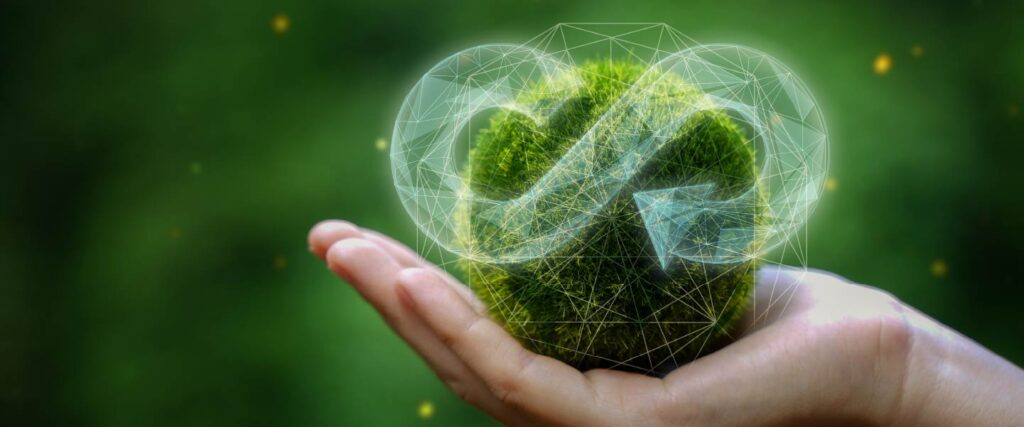The inclusive circular economy is a new way of thinking about our relationship with nature. It is a more responsible and respectful way to live with it and, at the same time, continue with our production and consumption processes. Surely this sounds familiar to you, but have you ever wondered what this model that is gradually establishing itself in the world includes? Stay reading to learn with us.
How does the circular economy work?
The circular economy is not only an environmentally responsible practice, but it is an economic model that goes through the entire production process on which countries depend to sustain themselves. Unlike the linear model that has dominated for decades, and which does not set limits on the exploitation of natural resources, this is based on 4 fundamental pillars:
- Refuse (the acquisition of raw materials)
- Redefine (design materials in such a way that they can be reused)
- Reduce (production of new products)
- Recycle (manage waste, collect it and transform it into new materials)
All this is summed up in one concept: take advantage. The circular economy model seeks to ensure that the materials produced circulate for as long as possible in the hands of the consumer, that is, they are used to the maximum in order to reduce the need to go to nature for our productive activities. Therefore, this model also includes other pillars such as the reuse of products, the repair and extension of the useful life of materials and the use of parts of an obsolete product to manufacture another.
At Origin, our business is based on the same concept of taking advantage. We manufacture recycled plastic bottles from discarded PET bottles, which are our raw material and are used to provide the consumer with a new resource. With this, we contribute to the preservation of natural resources and the well-being of our planet.
What does the word inclusive refer to?
If the circular economy seeks to minimize the exploitation of natural resources, the inclusive circular economy produces one more impact: the generation of employment. The circular economy implies a new form of production that is innovative, competitive and creates spaces where people can participate, produce and live from it.
One example is grassroots recyclers, who decisively promote this model, since they are responsible for managing and recovering discarded material in homes to transport it to the spaces where it is transformed. At Origin, we work with more than 5,600 recyclers who provide us with this material daily with the guarantee of a competitive payment for its management.
As you can see, the inclusive circular economy is not built from a single space. All citizens are a fundamental piece for the cycle of this model to be fulfilled. It is everyone’s responsibility to be consistent with what nature offers us, therefore, we invite you to join the Origin movement and be part of the change. Together we have the power to transform the world!




